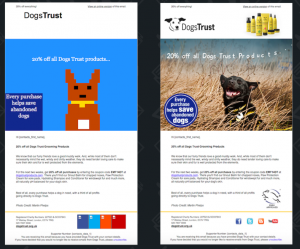Field Marketing is a role that bridges the gap between sales and marketing. As a field marketer, my goals are often tied to the success of the sales team. One of the many factors that leads to field marketing success is developing a relationship with sales that enables two-way feedback. This is particularly important around events, which requires collaboration between marketing and sales.

Some of the benefits of better alignment with your sales team include:
- A more effective event strategy.
Is your team struggling more with lead generation or with pipeline acceleration? Each of these goals calls for a very different action plan. The need for lead generation will require more event sponsorships and trade show exhibits while pipeline acceleration will require field events such as roadshows, dinners and hosted conferences.
- More accountability from your sales team.
We all know how difficult it is to get a sales team to properly tag and identify leads and event activity. Event software (like Attend) certainly helps with this aspect, but you’ll still need your sales team to do their part. A better relationship with sales will ensure that they heed your advice on properly entering information into your CRM.
Below are five tips to help you get started on building a better relationship with your sales team:
1. Hear them out.
Arrange 1:1s with sales leadership (or if you have the bandwidth, sales reps as well). You can take this opportunity to discuss pipeline, review past event performance and make decisions for upcoming events.
I’ve used 1:1s to discuss which sales reps should attend an event, review activity and next steps from previous events, and get buy-in for events that we’re considering. While this is a great opportunity to listen to your sales team, it’s also your opportunity to provide feedback and ensure you’re getting the support you need from sales.
2. Ingrain yourself in the sales culture.
Participate in as many sales meetings as you can and attend sales team outings. After all, you are an “extension” of their team!
During team meetings, you’ll gain valuable insights that can help you better plan your field marketing programs. You should also request time to chat about upcoming events and programs to ensure that the team is aware of what’s going on.
3. Communicate often.
Figure out what the best form of communication is for your sales team. Perhaps it’s emails needed, a weekly email, posting on an internal social network, or creating a separate channel on Slack or HipChat. We use Salesforce Chatter at my current organization and I created a chatter group specifically for field marketing that lists upcoming events with links to registration links and event briefs.
This information is sent out to the entire sales team vs. solely event attendees. After all, even if a team member isn’t attending an event, it doesn’t mean that one of their prospects won’t be in attendance. In addition, I send out surveys after every event requesting feedback such as areas for improvement, what went well/what didn’t go well, etc.
4. Hold a pre and post-event meeting for your events.
These meetings ensure team alignment and set the right expectations for both the event and follow-up. I typically hold the pre-event meeting two weeks out so that I have time to collect feedback and iron out last minute details that were brought up during the meeting. This also provides the team with ample time to start generating meetings and planning for on-site engagement.
My post-event meetings are generally held 2-3 business days after the event so I can collect feedback while it’s fresh in everyone’s mind. This is also a good time to remind event attendees to fill out event surveys and review all meetings that were held onsite.
5. Understand how sales measures success.
You should try to live in the CRM system that your sales team is using and gain a better understanding of how they’re measuring success. This will guide your event reporting metrics and enable you to create guidelines for the sales team on how to properly tag event activity in your system of record.
Doing this will allow you to hold your sales team truly accountable for following event processes around keeping track of conversations and following up. My motto is “if it’s not in Salesforce (our CRM), it didn’t happen!”
Sales feedback is another tool in your toolbox to help you become a better field marketer. The better you connect with your sales team, the more familiar you will be with their pipeline and the better you can help them flow those deals down the pipe.
Business & Finance Articles on Business 2 Community(15)






